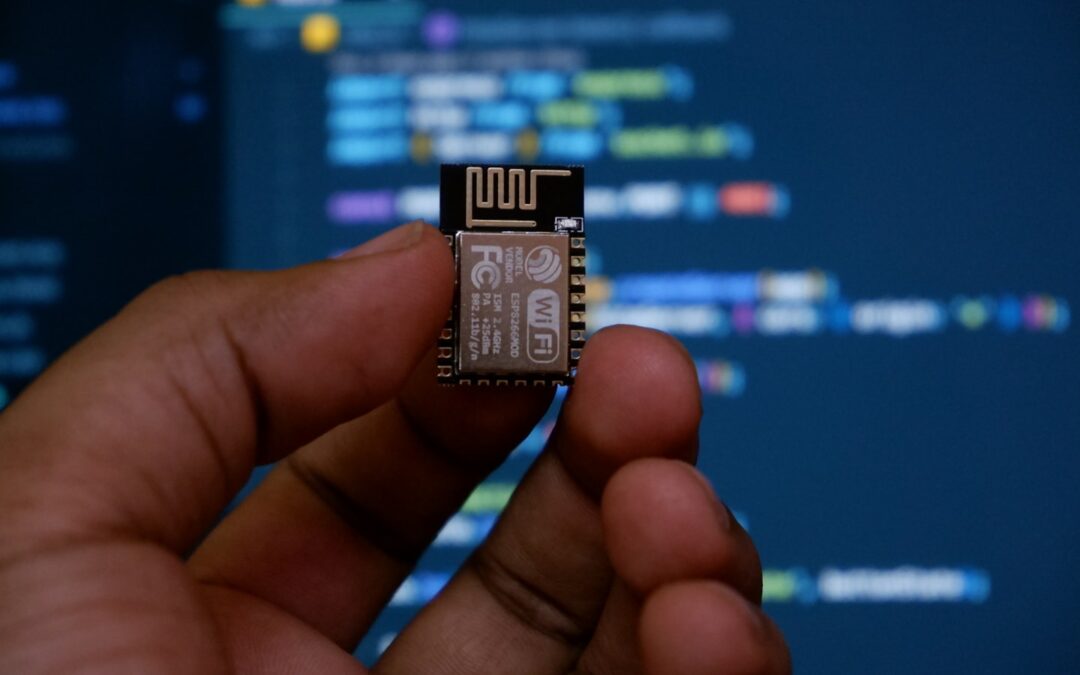Understanding the Risks of Insecure APIs in IoT Applications
The Threat of Insecure APIs Leading to Data Breaches
Securing APIs in IoT applications is paramount to prevent data breaches, especially in technologically advanced regions like Saudi Arabia and the UAE. In cities such as Riyadh and Dubai, where IoT adoption is rapidly growing, APIs (Application Programming Interfaces) serve as the backbone for communication between IoT devices and systems. However, if these APIs are not properly secured, they can become gateways for cyber attackers to exploit, leading to significant data breaches.
Insecure APIs can expose sensitive data, enabling unauthorized access and manipulation of critical information. For instance, in smart city projects where various IoT devices are interconnected, an insecure API could allow attackers to infiltrate the system and compromise public safety data. Similarly, in the healthcare sector, insecure APIs could lead to breaches of patient information, undermining trust and violating privacy regulations. The risk of data breaches through insecure APIs is a pressing concern for businesses and governments striving to protect sensitive information in an increasingly connected world.
Moreover, the complexity of IoT ecosystems exacerbates the vulnerability of APIs. With countless devices generating vast amounts of data, managing and securing every API becomes a daunting task. Attackers often exploit these vulnerabilities by injecting malicious code, intercepting data transmissions, or launching denial-of-service attacks. This can result in severe operational disruptions, financial losses, and reputational damage. Therefore, it is crucial for organizations in Riyadh, Dubai, and other tech-savvy regions to implement robust security measures to safeguard their APIs and, by extension, their entire IoT infrastructure.
Best Practices for Securing APIs in IoT Applications
To mitigate the risks associated with insecure APIs, organizations must adopt best practices that ensure the security of their IoT applications. One of the foundational steps is to implement strong authentication and authorization mechanisms. This involves using secure methods such as OAuth for user authentication and role-based access control (RBAC) to restrict API access based on user roles and permissions. By ensuring that only authorized users and devices can access the APIs, organizations can significantly reduce the risk of unauthorized access and data breaches.
Encryption is another critical measure for securing APIs. Data transmitted between IoT devices and systems should be encrypted using protocols such as TLS (Transport Layer Security). This ensures that even if data is intercepted during transmission, it remains unreadable to unauthorized parties. Additionally, API endpoints should be configured to reject unencrypted requests, enforcing a secure communication standard across the IoT ecosystem.
Regular security assessments and vulnerability testing are essential for maintaining API security. Organizations should conduct routine penetration testing and code reviews to identify and rectify potential vulnerabilities. Implementing a robust API gateway can also enhance security by providing features such as rate limiting, IP whitelisting, and traffic monitoring. This helps in detecting and mitigating suspicious activities in real-time, preventing potential attacks before they cause significant harm.
Advanced Strategies to Enhance API Security in IoT
In addition to foundational security practices, advanced strategies can further enhance the security of APIs in IoT applications. Leveraging artificial intelligence (AI) and machine learning (ML) can provide proactive threat detection and response capabilities. AI-driven security systems can analyze data patterns and identify anomalies that may indicate potential security threats. Machine learning algorithms can adapt and improve over time, becoming more effective at detecting sophisticated attacks and minimizing false positives.
Blockchain technology can also play a vital role in securing APIs within IoT ecosystems. By creating an immutable ledger of API transactions, blockchain ensures that any changes to the data are recorded and traceable. This transparency helps in maintaining data integrity and detecting any unauthorized modifications. In regions like Dubai, where blockchain adoption is encouraged, integrating blockchain with IoT can significantly bolster the security and reliability of API communications.
Moreover, adopting a zero-trust architecture can further enhance API security. This approach assumes that threats can originate from both outside and inside the network, and therefore, every request must be verified before granting access. Implementing zero-trust principles involves continuous verification of user identities, strict access controls, and comprehensive monitoring of API activities. This reduces the attack surface and ensures that even if one API is compromised, the impact is contained and minimized.
Strategic Approaches for Business Success in Securing IoT
Developing a Comprehensive API Security Strategy
A well-defined strategy is essential for securing APIs in IoT applications. Business leaders in Riyadh and Dubai must prioritize the development of security strategies that align with their organizational goals and technological capabilities. This involves conducting thorough risk assessments to identify potential vulnerabilities and implementing robust security frameworks that encompass authentication, encryption, and continuous monitoring.
Key to this strategy is the integration of executive coaching services, which provide invaluable support in developing and executing these plans. Coaches offer insights into best practices for API security, helping leaders navigate challenges and optimize their strategies. This support is particularly important in the fast-paced business environments of Saudi Arabia and the UAE, where staying ahead of technological trends is crucial for maintaining a competitive edge.
Additionally, fostering a culture of security awareness is vital for the success of API security initiatives. Regular training and awareness programs for employees can ensure that everyone understands the importance of API security and follows best practices. This collaborative approach fosters a proactive security culture, where potential threats are identified and addressed promptly.
Continuous Improvement and Adaptation in API Security
The dynamic nature of technology necessitates a commitment to continuous improvement and adaptation in API security. Organizations in the UAE and Saudi Arabia must regularly review and update their API security strategies to keep pace with evolving threats and technological advancements. This involves staying informed about the latest security trends and incorporating new technologies and methodologies to enhance API security.
Continuous improvement also requires ongoing training and development for employees. Executive coaching services facilitate this by providing tailored training programs that enhance the skills and knowledge of business leaders and their teams. By fostering a culture of continuous learning, organizations ensure they remain agile and responsive to changes in the technological landscape. This adaptability is crucial for maintaining robust API security in the long term.
Moreover, leveraging data analytics to assess the performance of API security measures is essential. Regular analysis of key performance indicators (KPIs) provides insights into the effectiveness of implemented strategies and identifies areas for improvement. By using data-driven insights to guide decision-making, organizations can continuously refine their API security measures, ensuring optimal performance and protection against data breaches.
Building a Secure and Future-Ready IoT Infrastructure
As we look to the future, securing APIs in IoT applications will be essential for building a secure and future-ready IoT infrastructure. In the innovative landscapes of Riyadh and Dubai, where technology is a key driver of economic growth, businesses must prioritize API security to stay competitive. Leveraging advanced technologies such as AI and blockchain, and investing in executive coaching services, organizations can develop robust strategies that enhance the security and reliability of their APIs.
The focus on API security not only protects sensitive data but also supports broader business goals such as operational efficiency and customer trust. As businesses in Saudi Arabia and the UAE continue to embrace digital transformation, securing APIs will be critical for achieving long-term success. By fostering a culture of innovation and continuous improvement, organizations can navigate the complexities of IoT and lead the way in technological advancements.
In conclusion, securing APIs in IoT applications is vital for preventing data breaches and ensuring the reliability of IoT systems. For businesses in Riyadh, Dubai, and beyond, adopting best practices and advanced strategies for API security is essential for maintaining a competitive advantage and driving sustainable growth. With the support of executive coaching services and the integration of advanced technologies, organizations can build secure and reliable IoT systems that support their strategic objectives and pave the way for future innovations.
—
#APISecurity, #IoTApplications, #DataBreaches, #AI, #Blockchain, #ExecutiveCoaching, #Leadership, #DubaiTech, #RiyadhInnovation













